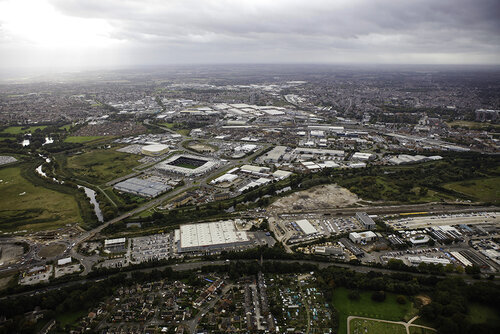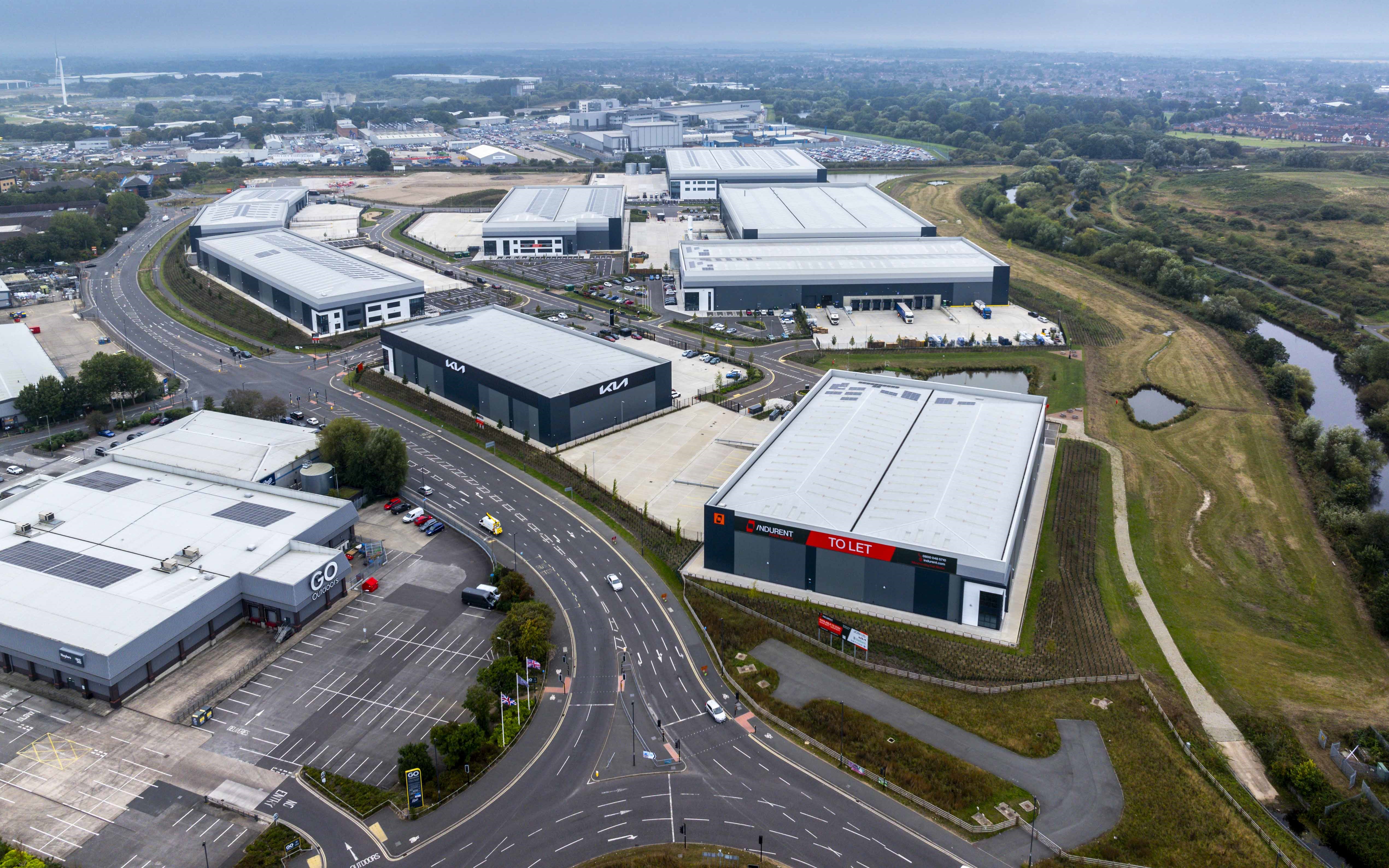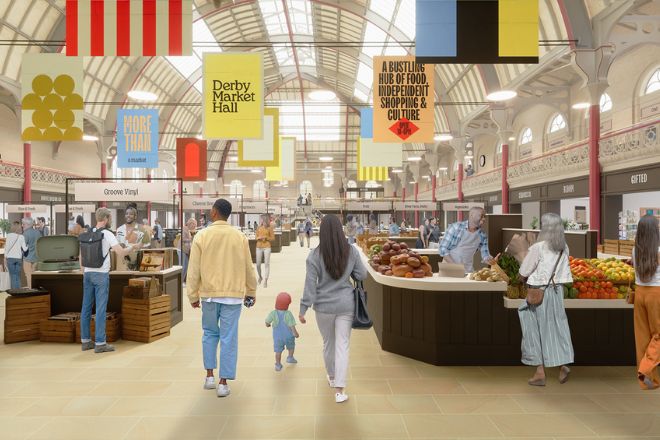Investment News | 10 March 2021
Derby’s industrial sector reaches record high in 2021

The city’s annual in-depth commercial property review published by Innes England has revealed more than a 500% increase in the take-up of Grade A industrial space – its highest ever recorded.
The Market Insite report – which was presented virtually this year for the first time in its 14-year history – monitors trends in the regional property market focussing on Leicester, Derby and Nottingham and also showed an 82% increase in total industrial take-up in Derby in 2020.
In Derby, the 2021 report highlighted:
*590% increase in the take-up of Grade A industrial space and 82% increase in total industrial take-up.
*The largest industrial deal was the 371,000 sq ft speculative distribution warehouse at Derby Commercial Park leased by Panattoni to healthcare logistics company Alloga UK.
*Decrease in Grade A industrial availability with an 86% fall in supply from 2019, but a 58% increase in good second hand industrial space.
*Derby’s investment performance reduced by 60% to £112 million.
*75% of total investment was within the industrial sector.
*Second hand office take-up increased by 27%
Nick Hosking, director at Innes England, said: “The industrial sector was the standout performer in 2020, and commercial property activity in Derby was dominated by Grade A space industrial lettings, which account for 74% of transactions – showing that there was a demand from the big logistic operators.”
The largest deal within the local industrial sector was the 371,000 sq ft speculative unit at Derby Commercial Park leased in Q4 by Panattoni to healthcare logistics company Alloga UK.
Nick added: “It is becoming increasingly obvious that there is a need to differentiate between our more traditional marketplace and the strategic distribution sector, for the overall take-up figures are skewed by these large one-off transactions that could provide a rather false sense of security.
“Importantly and beneficially the big logistic companies are an increasing phenomenon and a significant driver of employment and development activity in our region.
“Over the year we also saw an increasing number of enquires for smaller industrial units stemming from a growing number of new starts, but also modest expansions from a number of existing firms. Enquiries still come from a plethora of sectors but there is no greater demand being shown by distribution companies, than there is from manufacturers, which is encouraging.
“The take-up of industrial space in Derby was 592,000 sq ft, and although this is a large increase from previous years, Derby is slightly behind compared to Nottingham and Leicester having been affected by the fortunes of Rolls-Royce, which remains hugely influential to the performance of Derby’s industrial sector and can be seen as a barometer of its marketplace.”
The report revealed a decrease in Grade A industrial availability with just 68,000 sq ft available, an 86% decrease from 470,000 sq ft in 2019, but a 58% increase in good second hand industrial space.
Derby’s overall investment performance decreased by 60% to £112 million with 75% of total investment accounted for in the industrial sector, 16% in retail and just 4% in office.
Matt Hannah, managing director at Innes England, who oversaw the investment and retail report, said: “Just like the rest of the country, the retail market in Derby experienced challenges during 2020 with some of the issues we have seen in terms of the high street accelerating due to the pandemic.”
Second hand office take-up increased by 27% although Grade A office space in Derby is continuing to be absent since 2017.
Key office deals in Derby included global life science company Tentamus, which acquired a new regional HQ at Pride Park while serviced office operator Staton Young expanded its Derby base by acquiring the 44,000 sq ft former tax office building at Northgate House, in Agard Street.
Nick said: “I would reiterate the almost countrywide sentiment that the industrial sector has proved fantastically resilient despite some monumental challenges.
“The development sector seems fully in tune with this and has responded accordingly to provide hopefully a balanced marketplace. I hope that this continues to be the case, as it has certainly started well this year.”


